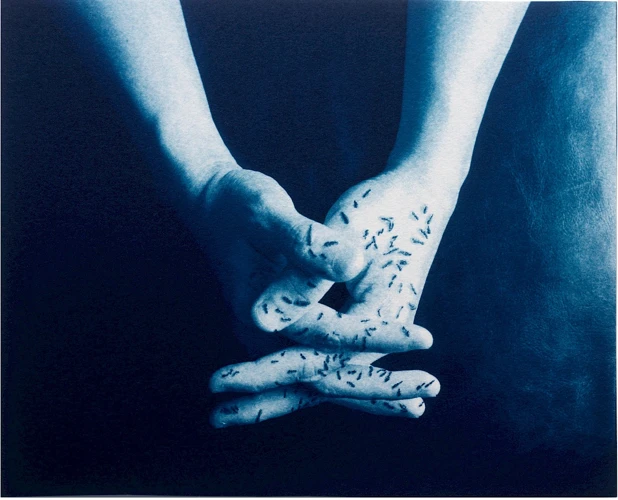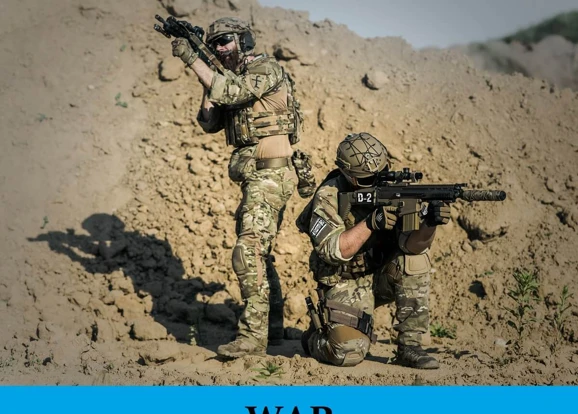Dreams have always fascinated and perplexed us, as they provide a glimpse into our innermost thoughts and emotions. One particularly striking and often puzzling dream symbol is war. What does it mean if you dream about war? Are there hidden messages or symbolism behind these dreams? In this article, we will delve into the world of dreams, exploring the various meanings and interpretations of dreaming about war. By understanding the context, analyzing personal feelings, and delving into the symbolic representation of conflict, we can gain insight into the possible significance of war dreams. Join us as we explore the depths of this symbolic terrain and unravel the mysteries of war in our dreams.
The Symbolism of War in Dreams

1. Understanding the Context of War Dreams: Dreams about war can have various contextual meanings depending on the dreamer’s personal experiences and beliefs. They may symbolize internal conflicts, external struggles, or larger societal issues.
2. Analysis of Personal Feelings and Emotions: When interpreting war dreams, it is crucial to explore the emotions associated with the dream. Fear, anger, anxiety, or a sense of powerlessness can offer insights into the dreamer’s psychological state.
3. Symbolic Representation of Conflict and Struggles: War in dreams can represent unresolved conflicts, power struggles, or challenges in personal relationships. It may reflect feelings of aggression, competition, or the need to assert oneself.
4. Unresolved Issues and Trauma: For individuals who have experienced war or have a history of trauma, dreams about war can be a manifestation of unresolved emotions and memories.
5. Fear and Anxiety Manifestation: War dreams can also stem from deep-seated fears and anxieties, even if the dreamer has no personal connection to war. These dreams may symbolize a fear of confrontation, uncertainty about the future, or a need to protect oneself from external threats.
1. Understanding the Context of War Dreams
Understanding the context of war dreams is essential in unraveling their symbolic meaning. The interpretation of these dreams hinges on the individual’s personal experiences, beliefs, and cultural influences. It is important to consider whether the dreamer has any direct connection to war, such as being a veteran, living in a conflict zone, or having family members in the military. Additionally, the dreamer’s broader understanding of war, whether through historical knowledge or exposure to media, can shape the context of the dream. By examining these contextual factors, we can gain a deeper understanding of why war imagery has emerged in the dreamer’s subconscious mind.
2. Analysis of Personal Feelings and Emotions
– Probing into Personal Feelings: When analyzing war dreams, it is essential to delve into the individual’s emotions experienced within the dream. Strong emotions such as fear, anger, sadness, or confusion can provide valuable insights into the dreamer’s mental state.
– Identifying Underlying Emotions: War dreams may not be directly related to warfare but rather symbolize the presence of certain emotions or conflicts in the dreamer’s waking life. These emotions could range from unresolved conflicts, power struggles, or a feeling of being overwhelmed.
– Examination of Dreamer’s Relationships: The relationships depicted in war dreams can offer clues about the dreamer’s emotional connections or lack thereof. It is crucial to explore the dynamics between individuals and their roles in the dream to gain a better understanding of the emotional landscape within the dreamer’s life.
– Recognizing Patterns and Themes: By analyzing recurring war dreams, patterns and themes may emerge, providing valuable insight into the dreamer’s persistent feelings, unresolved issues, or recurring life situations that require attention.
– The Role of the Dreamer: It is essential to consider the dreamer’s personal perspective and experiences, as interpretations can vary based on individual history, beliefs, and cultural background. Each dreamer’s unique emotional context shapes the symbolism and significance of war dreams.
3. Symbolic Representation of Conflict and Struggles
In the realm of dreams, war can symbolically represent conflict and struggles that exist in the dreamer’s waking life. It serves as a metaphor for internal battles or external challenges that the dreamer may be facing. The war imagery may manifest as a representation of power struggles, disagreements, or unresolved tensions in relationships. It could reflect the dreamer’s need to assert themselves or their struggle to find balance between opposing forces. The symbolism of war in dreams often highlights the need for resolution and finding a path towards peace and harmony. By exploring these symbolic representations, the dreamer can gain insight into the areas of their life that require attention and resolution.
4. Unresolved Issues and Trauma
– War dreams can serve as a reflection of unresolved issues and trauma in the dreamer’s life. These dreams may arise from past experiences of violence, witnessing war, or being directly involved in conflicts.
– For individuals who have experienced personal trauma or lived in war-torn areas, such dreams can act as a way for the subconscious mind to process and cope with these unresolved emotions and memories.
– War dreams can trigger feelings of fear, anxiety, and helplessness, often indicating that there are unresolved issues that need addressing. Seeking therapy or counseling may be beneficial for those dealing with trauma-related war dreams.
– It is important to remember that war dreams are symbolic and should not be taken as literal predictions of future events. Instead, they should be seen as opportunities for self-reflection and healing, allowing individuals to explore and reconcile their past experiences and emotions.
5. Fear and Anxiety Manifestation
Fear and anxiety are common emotions that can manifest in dreams about war. These dreams may serve as an outlet for the dreamer’s anxieties, worries, and concerns about their own safety or the safety of their loved ones. Dreaming about war can be a symbolic representation of feeling overwhelmed by life’s challenges or feeling a lack of control in certain areas. It is important to pay attention to the specific details and emotions experienced in the dream to gain a deeper understanding of what fears and anxieties are being highlighted. By identifying and addressing these fears, the dreamer can work towards finding peace and resolution in their waking life.
Interpreting Different War Scenarios in Dreams

1. Being a Participant in the War: Dreams where the dreamer actively takes part in the war can symbolize a struggle for control or power in their waking life. It may reflect the need to assert oneself or the desire to overcome challenges and obstacles.
2. Witnessing War from a Distance: Dreams in which the dreamer is an observer of war from afar may suggest a sense of detachment or avoidance of conflicts in their waking life. It could indicate a need to gain perspective or a reluctance to confront difficult emotions or situations.
3. Surviving or Escaping War: Dreams of survival or escape from war can symbolize the dreamer’s resilience and desire to overcome adversity. These dreams may reflect a need for freedom, protection, or a longing for a more peaceful existence.
4. Involved in Peaceful Resolutions: Dreams that involve finding peaceful resolutions amidst war can signify the dreamer’s desire to mediate conflicts, promote harmony, or seek compromise in their waking life. It may indicate diplomatic skills or a yearning for peaceful coexistence.
Interpreting different war scenarios in dreams involves analyzing the dreamer’s emotions, actions, and the overall context of the dream to gain deeper insights into their personal experiences and psyche.
1. Being a Participant in the War
1. Being a Participant in the War:
– Dreaming about actively participating in a war can symbolize a desire for power, control, or the need to assert oneself in waking life.
– It may suggest a feeling of being caught in the middle of conflicts or struggling to find a balance between different aspects of life.
– This type of dream could also indicate a sense of responsibility or a need to take a stand on certain issues.
Alternatively:
– Being a participant in a war dream can also represent feelings of aggression, pent-up anger, or a need to confront and overcome challenges.
– It may indicate that the dreamer is facing personal or professional struggles and needs to channel their energy towards finding resolutions.
– This dream scenario could reference the dreamer’s internal battles, such as conflicting emotions or inner turmoil.
2. Witnessing War from a Distance
In some war dreams, individuals find themselves in the role of a spectator, witnessing the conflict from a distance. This dream scenario could symbolize a sense of detachment or feeling overwhelmed by the chaos and violence in the world. It may suggest the dreamer’s desire to remain neutral or avoid getting directly involved in conflicts, both in their personal life and in society. Alternatively, it could represent a fear of being dragged into dramatic situations or feeling powerless to stop the turmoil around them. This dream scenario invites introspection into the dreamer’s perspective on war, their relationship with societal issues, and their ability to maintain emotional distance in times of turmoil.
3. Surviving or Escaping War
In war dreams, one common scenario is the dreamer’s involvement in surviving or escaping the war. This can symbolize the dreamer’s resilience, resourcefulness, and ability to overcome challenges. It may reflect a desire to avoid conflict or a need for self-preservation in difficult situations. Surviving or escaping war in dreams can also represent a longing for safety, stability, and a sense of control over unpredictable circumstances. The dreamer may be seeking a way to navigate through challenging times or trying to distance themselves from conflict and chaos. Additionally, this dream theme can symbolize the dreamer’s capacity to adapt and find solutions in the face of adversity.
4. Involved in Peaceful Resolutions
4. Involved in Peaceful Resolutions:
Dreams of being involved in peaceful resolutions during war can carry significant symbolism. These dreams often indicate the dreamer’s desire for harmony, conflict resolution, and the pursuit of peaceful solutions in their waking life. They may represent the dreamer’s ability to navigate through difficult situations with diplomacy and empathy. These dreams can also highlight the dreamer’s inner strength and resilience, showing a willingness to find common ground and create positive outcomes even in the midst of chaos and tension. Such dreams can serve as a reminder to the dreamer to seek peaceful resolutions in their waking life and to foster a sense of unity and understanding with others.
Common Themes and Variations in War Dreams

1. Battle Scenes and Combat: One common theme in war dreams is the presence of intense battle scenes and combat. These dreams may depict the dreamer actively participating in the fighting, symbolizing a need to confront challenges or assert their power.
2. Destruction and Chaos: War dreams often involve a sense of destruction and chaos. Buildings crumbling, landscapes ravaged, or cities in ruins can signify feelings of instability, upheaval, or a lack of control in the dreamer’s life.
3. Loss of Loved Ones: Losing loved ones in war dreams can evoke powerful emotions. It may represent feelings of abandonment, grief, or fear of losing important relationships in waking life.
4. Nuclear War and Apocalyptic Scenarios: Some war dreams take on a more extreme and apocalyptic form, depicting nuclear war or catastrophic events. These dreams may reflect deep-seated fears about global issues and the potential for mass destruction.
Exploring these common themes and variations can help unlock the underlying symbolism and messages within war dreams, enabling individuals to gain a better understanding of their own thoughts and emotions.
1. Battle Scenes and Combat
Battle scenes and combat are common themes in war dreams, and they carry significant symbolism. Dreaming about being involved in a battle or witnessing combat can represent personal struggles and conflicts in waking life. It may signify the need to take a stand, defend oneself, or confront a challenging situation. These dreams can also reflect a sense of powerlessness or aggression that needs to be addressed. The intensity of the battle scenes and the outcome of the combat can provide further insight into the dreamer’s emotions and subconscious desires. Psychological factors such as feelings of strength, bravery, or vulnerability during these dreams can be important clues to unravel their symbolic meaning.
2. Destruction and Chaos
Dreams about war often feature scenes of destruction and chaos. These vivid images can represent a variety of symbolic meanings. Destruction symbolizes the breaking down of old patterns or structures that no longer serve the dreamer. It can signify the need for change or the fear of losing control. Chaos, on the other hand, reflects a sense of confusion or disorder in one’s life. It may indicate feelings of being overwhelmed or out of balance. The presence of destruction and chaos in war dreams can serve as a reminder to address areas of instability or turmoil in waking life. By recognizing and acknowledging these emotions, the dreamer can work towards finding resolution and restoring a sense of order.
3. Loss of Loved Ones
– Loss of Loved Ones: Dreams about war can often involve the heartbreaking experience of losing loved ones. The symbolism of losing someone in war dreams can represent feelings of grief, mourning, or a fear of losing important relationships. It may reflect a fear of abandonment, separation anxiety, or unresolved feelings related to the loss of a loved one in real life.
– Symbolic Representation of Loss: The loss of loved ones in war dreams can also have symbolic meanings beyond literal interpretation. It may symbolize the loss of a part of oneself, the end of a significant relationship or a transformational period in life. These dreams can evoke intense emotions and may serve as a reminder to cherish and appreciate the relationships we hold dear.
– Processing Grief and Emotions: War dreams involving the loss of loved ones may provide an opportunity for the dreamer to process grief, unresolved emotions, or to say goodbye to someone who has passed away. These dreams can offer a space for healing and finding closure, allowing the dreamer to address and come to terms with their feelings of loss.
– Seeking Support and Healing: If war dreams involving the loss of loved ones become distressing or recurring, seeking support from a therapist or counselor can be beneficial. Professional guidance can assist in exploring and processing the emotions connected to the loss, helping individuals find healing and peace in their waking life.
4. Nuclear War and Apocalyptic Scenarios
4. Nuclear War and Apocalyptic Scenarios: In some war dreams, there may be a specific focus on nuclear war or apocalyptic scenarios. These dreams often reflect deep-seated fears about the potential destruction of the world or the collapse of society. They may symbolize feelings of powerlessness, existential dread, or a sense of impending doom. It’s important to consider the underlying anxieties and concerns that these dreams represent, as they can provide valuable insights into the dreamer’s subconscious fears and desires for safety and security.
Understanding the Psychological Impact
1. Post-Traumatic Stress Disorder (PTSD): War dreams can be particularly significant for individuals who have experienced war or traumas related to conflict. Nightmares and vivid war-related dreams can be symptoms of post-traumatic stress disorder (PTSD), requiring psychological intervention and support.
2. Anxiety Disorders and Nightmares: War dreams can also be associated with anxiety disorders, such as generalized anxiety disorder or panic disorder. These dreams can exacerbate feelings of fear, stress, and unease, impacting overall emotional well-being.
3. Symbolic Resolution and Emotional Healing: War dreams can provide an opportunity for symbolic resolution and emotional healing. They may serve as a subconscious way of processing past traumas, prompting the dreamer to confront and resolve unresolved conflicts or emotions associated with war.
Understanding the psychological impact of war dreams is crucial in providing support and guidance for individuals who experience these intense and sometimes distressing dreams. Recognizing the potential correlation between war dreams and psychological conditions can lead to appropriate interventions and therapeutic approaches.
1. Post-Traumatic Stress Disorder (PTSD)
– Post-Traumatic Stress Disorder (PTSD): War dreams can be particularly significant for individuals who have experienced trauma, such as soldiers or survivors of war. Those with PTSD may have recurrent nightmares about war that vividly bring back memories and emotions associated with their traumatic experiences.
– Re-experiencing Trauma: War dreams can serve as a way for individuals with PTSD to re-experience and process their trauma in a symbolic and subconscious manner. These dreams may reflect the intense fear, helplessness, and distress often associated with PTSD.
– Triggers and Flashbacks: War dreams can be triggered by various factors, such as anniversaries, reminders, or external stimuli that resemble the traumatic event. These dreams may intensify symptoms of PTSD and contribute to ongoing distress.
– Seeking Treatment: If war dreams are causing significant distress or interfering with daily life, it is crucial for individuals with PTSD to seek professional help. Therapies such as cognitive-behavioral therapy (CBT) and eye movement desensitization and reprocessing (EMDR) can assist in processing trauma and reducing the frequency and intensity of war dreams.
2. Anxiety Disorders and Nightmares
2. Anxiety Disorders and Nightmares:
War dreams can be particularly prevalent among individuals with anxiety disorders. Anxiety can manifest in various ways, including recurring nightmares. These nightmares often involve war scenarios and reflect the individual’s heightened sense of fear and worry. The vividness and intensity of these dreams may exacerbate anxiety symptoms, leading to sleep disturbances and further distress. It is important for individuals experiencing anxiety-related war dreams to seek appropriate support and treatment to address the underlying anxiety disorder and alleviate the frequency and intensity of these nightmares.
3. Symbolic Resolution and Emotional Healing
Symbolic Resolution and Emotional Healing:
In some war dreams, there may be a symbolic resolution or opportunity for emotional healing. These dreams can provide a sense of closure, reconciliation, or a chance to confront inner conflicts. Symbolic resolution may involve reaching a peaceful resolution to the conflict, finding common ground, or overcoming personal struggles. Dreamers may experience a release of pent-up emotions, a sense of relief, or a newfound perspective that leads to emotional healing. It is important to pay attention to these dreams as they can offer valuable insights and guidance on the path towards inner peace and personal growth.
Conclusion
In conclusion, dreams about war hold significant symbolism and meaning. They can represent a range of emotions, conflicts, and struggles within the dreamer’s psyche. By analyzing the context, personal feelings, and symbolic representations, we can gain insight into the underlying messages of war dreams. It is important to remember that dream interpretation is subjective, and each individual may have different associations and experiences related to war. Exploring the psychological impact and seeking resolution for any unresolved issues or trauma can help promote emotional healing. Ultimately, understanding and interpreting war dreams can provide valuable introspection and self-discovery, allowing individuals to navigate the complexities of their subconscious minds with greater clarity.
Frequently Asked Questions
1. Why do I keep having dreams about war?
Dreams about war can have multiple underlying reasons. It could be a reflection of personal conflicts, unresolved issues, fears, or anxieties. Pay attention to the emotions and context of the dream to gain a better understanding of its meaning.
2. Are war dreams a sign of aggression?
War dreams do not necessarily indicate aggression. Instead, they often symbolize internal struggles or external challenges. These dreams can reveal a need for resolution or assertiveness rather than aggression itself.
3. Can war dreams be related to past traumas?
Yes, war dreams can indeed be associated with past traumas, especially for individuals who have experienced war or have gone through traumatic events. These dreams may serve as a way for the subconscious mind to process unresolved emotions and memories.
4. Do war dreams have any symbolic significance?
Yes, war dreams can carry symbolic significance. They may represent power struggles, conflicts in relationships, or larger societal issues. Analyzing the symbolism in the dream can provide insights into the dreamer’s subconscious thoughts and emotions.
5. Can war dreams be prophetic?
While some people claim to have experienced prophetic dreams, there is no scientific evidence to support this claim. War dreams are generally seen as symbolic reflections of the dreamer’s thoughts, feelings, and experiences, rather than glimpses into the future.
6. Are war dreams primarily negative or positive?
War dreams can be both negative and positive, depending on the context and the emotions involved. While they may depict destruction and chaos, they can also represent opportunities for growth, resolution, or the need for change.
7. How can I interpret a war dream?
To interpret a war dream, consider the context, the emotions felt during the dream, and any personal experiences or conflicts in your waking life. Reflect on the symbolism within the dream and how it relates to your thoughts and emotions to gain a deeper understanding.
8. Are there any common variations of war dreams?
Yes, war dreams can vary greatly. Some common variations include being a participant in the war, witnessing war from a distance, surviving or escaping war, or even being involved in peaceful resolutions. Each variation carries its own unique symbolism and meaning.
9. Should I be concerned if I frequently dream about war?
While frequent war dreams can be unsettling, they are generally a normal part of the dream experience. However, if these dreams cause excessive distress, anxiety, or interfere with your daily life, it may be beneficial to seek support from a mental health professional.
10. Can interpreting war dreams help with emotional healing?
Yes, interpreting war dreams can offer insights into one’s emotions, unresolved issues, and potential areas of growth. By understanding the symbolism in these dreams, individuals can gain a deeper understanding of themselves and work towards emotional healing and resolution.


